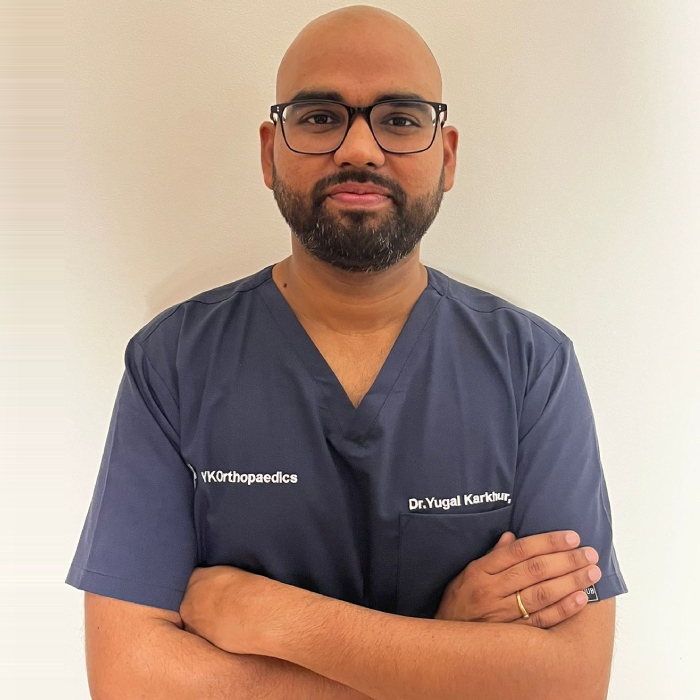Hip pain and stiffness which fail to react to medication or lifestyle adjustments can affect an everyday task significantly. Here hip replacement surgery or to give it its medical name total hip arthroplasty is relevant. During this operation, a prosthesis implant is fitted in an area that was extensively damaged in the hip joint to allow movement, lessen pain and enhance the quality of one life. When other means of treating arthritis, broken bones, or even avascular necrosis (bone death) are not working well, joint replacement tends to become the gold standard.
What Triggers The Need Of Hip Replacement?
The typical symptoms are:
- OA(Osteoarthritis) that causes cartilages and bones to wear out
- Rheumatoid arthritis that results in inflammation and joint destruction
- Hip fractures that have not healed appropriately
- Avascular necrosis compares to situations where the supply of blood to the head of the femur is impaired
When walking, climbing up stairs (or in fact sleepless nights) are painful, the pain that can induce a total hip arthroplasty brings significant changes into the life.
What Occurs During Surgery for Hip Replacement?
- Preoperative Preparation
Pre-surgery, your orthopaedic surgeon will place you on imaging, on blood, ECG and overall fitness. Quit smoking, weight loss, and a leg-strengthening program are advised to maximize the result.
- Surgical Technique
Following spinal or general anesthesia, an incision is made as would be routine (through a posterior, lateral or anterior approach). The fractured femoral head and cartilage in the socket are taken out. The new prosthetic includes:
- A femoral inserted into the femur
- A metal/ceramic ball on the top of stem
- An acetabular cup retained in the pelvis
- Liner made of plastic, ceramic, or metal that both ball and socket slide over gracefully.
Implants may be cemented or press fit to promote bone growth onto uncemented components depending on the age and bone quality.
- Duration & Hospital Stay
Surgery typically lasts 1–2 hours. During an intermediate hospitalization of 2–5 days, controlling with monitoring, early mobilization, and wound checked before discharge.
Recovery: What to Expect
- The first few days following surgery: In most cases, physical therapy starts within the first 24 hours with the patient walking with the aid of a walker or crutches to avoid stiffness and blood clots.
- First 6 weeks: Avoid bending beyond 90°, crossing legs, and heavy lifting—especially with the posterior approach to minimise dislocation risk.
- Three to six months: Rehab is ongoing; some people are back to their daily routines and doing light physical activity three months post injury. A full recovery may take a year, yet the majority of suffers see a reduction in symptoms within a few months.
Benefits of Total Hip Arthroplasty
- Stunning improvement in chronic pain in the hip
- Improved mobility, strength, and gait
- Ability to participate in an activity with low-impact, such as swimming or walkin
- Prostheses is many times 15-20 years, and there have been advances that suggest you can make them last a lifetime.
According to one of our patients, modern hip replacements last a lot longer than people were led to believe, and age is no longer as big a barrier to surgery as it was before.
Risks and Potential Problems
Hip replacement is usually safe, but there are risks associated with it:
- Blood clots (deep vein thrombosis or pulmonary embolism) which is prevented by early mobilization and anticoagulants
- Infection - typically not common (12 or 2 percent), but severe, and necessitating removal or revision surgery
- Dislocation of new joint (1-3%) is more frequent during first month
- Nerve damage, particularly sciatic nerve paralysis and weakness or numbness of the feet
- Loosening of the implant, discrepancy in length of legs, or unusual growth of bone-in rare situations, would need secondary care or revision
Such risks notwithstanding, the level of satisfaction is high with more than 90 percent of patients reporting an excellent (or good) outcome.
Dr. Yugal Karkhur – The Best Orthopaedic Specialist in Gurgaon
If you are contemplating for hip replacement, then you can consult Dr. Yugal Karkhur, who is one of the best orthopaedic surgeon in Gurgaon. He is known for his excellent hip replacement expertise, including Total Hip Replacement in Gurgaon. Boasting more than 14 years of professional experience and having completed thousands of successful total hip arthroplasty surgeries, Dr. Karkhur has a reputation for providing outstanding results with a personal touch.
FAQs About Total Hip Replacement
Q1 What is total hip replacement vs hip replacement?
They are identical. Replacement of both limited to the socket and the head is called a total hip replacement or a total hip arthroplasty.
Q2: What is the life of a hip replacement?
The present day implants have a normal life of 15 20+ years. The right care can make them live even longer.
Q3: What is the best orthopaedic doctor in Gurgaon?
Seek approval by a board and a proven history of hip replacement surgery, referrals and testimonials as well as access to a high level of preoperative care.
Q4: Does the replacement of hip hurt?
It is an anesthetic free process. The pain after the surgery is addressed both through medication and physical therapy to facilitate healing.


